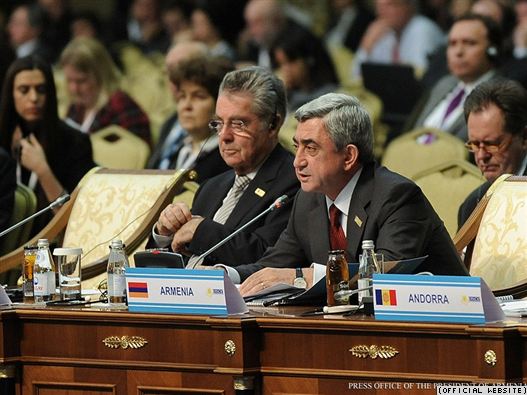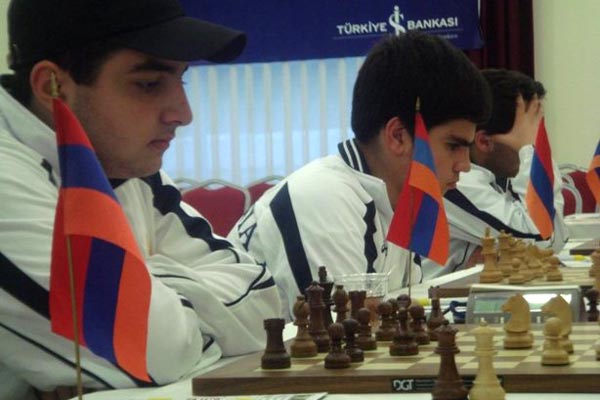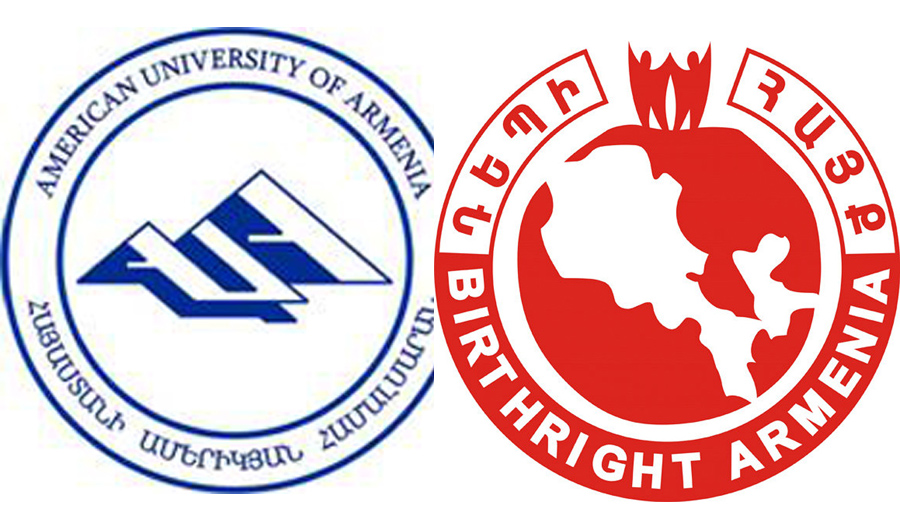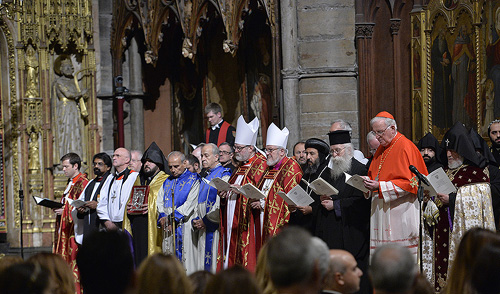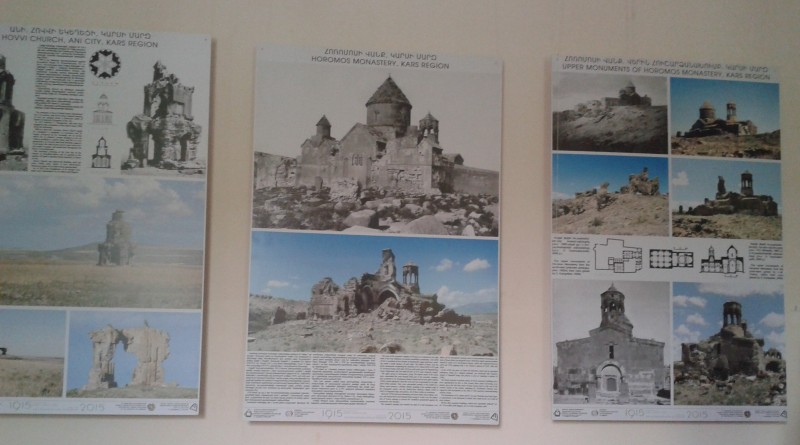ASTANA — Armenia threatened on Thursday to formally recognize Nagorno-Karabakh as an independent state if Azerbaijan tries to win back the enclave and other Armenian-controlled territories surrounding it by force.
President Serzh Sarkisian issued the warning as he hit back at his Azerbaijani counterpart, Ilham Aliyev, during the summit of the Organization for Security and Cooperation in Europe held in Astana, Kazakhstan.
Addressing the summit on Wednesday, Aliyev said Armenia is dragging out the Karabakh negotiating process mediated by the United States, Russia and France. He also accused the Armenians of committing “war crimes and a genocide” against Karabakh’s Azerbaijani minority during the 1991-1994 war.
In his speech, Sarkisian insisted that it is Azerbaijan that unleashed a “policy of ethnic cleansing and full-fledged military aggression” against the Karabakh Armenians in 1992. He said Baku has “no interest in the resolution of the Karabakh problem” and again denounced Aliyev’s regular threats of a military solution to the Armenian-Azerbaijani dispute.
“In case Azerbaijan resorts to military aggression, Armenia would not have any other choice but to recognize the Nagorno-Karabakh Republic de jure and to invest all its capabilities into ensuring the security of the people of Artsakh,” warned Sarkisian.
“Nagorno-Karabakh has no future within Azerbaijan and, whatever the solution, it should emanate from the will of the people of Karabakh,” he said.
The bitter exchange between the two presidents underscored the apparent failure of the latest Russian-led international push for a Karabakh settlement. Russian President Dmitry Medvedev hoped that the conflicting parties will reach a framework peace agreement during the summit.
Contrary to expectations, Aliyev and Sarkisian did not even meet at Astana. They only signed a joint statement with Medvedev, French Prime Minister Francois Fillon and U.S. Secretary of State Hillary Clinton. The statement said the parties will make “more decisive efforts” to achieve a peaceful settlement of the dispute.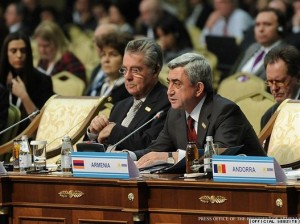

Open Letter on the Proposal to Rename the Armenia-Turkey Border Crossing After Talat Pasha
We express our deep concern and disappointment regarding the recent proposal introduced…
- MassisPost
- July 3, 2025
- No comments
- 2 minute read
Pashinyan’s Visit to Turkey and Beyond
By KRIKOR KHODANIAN At the invitation of Turkish President Recep Tayyip Erdoğan,…
- MassisPost
- June 29, 2025
- No comments
- 3 minute read
“I Still Can’t Believe What Happened on June 20”
By LUSYEN KOPA Exactly three months ago, I wrote an article titled…
- MassisPost
- June 26, 2025
- No comments
- 4 minute read
Anniversary of the Immortality of the Twenty Hnchakian Heroes
By KRIKOR KHODANIAN 110 years ago these days, the prominent figures of…
- MassisPost
- June 15, 2025
- No comments
- 3 minute read

